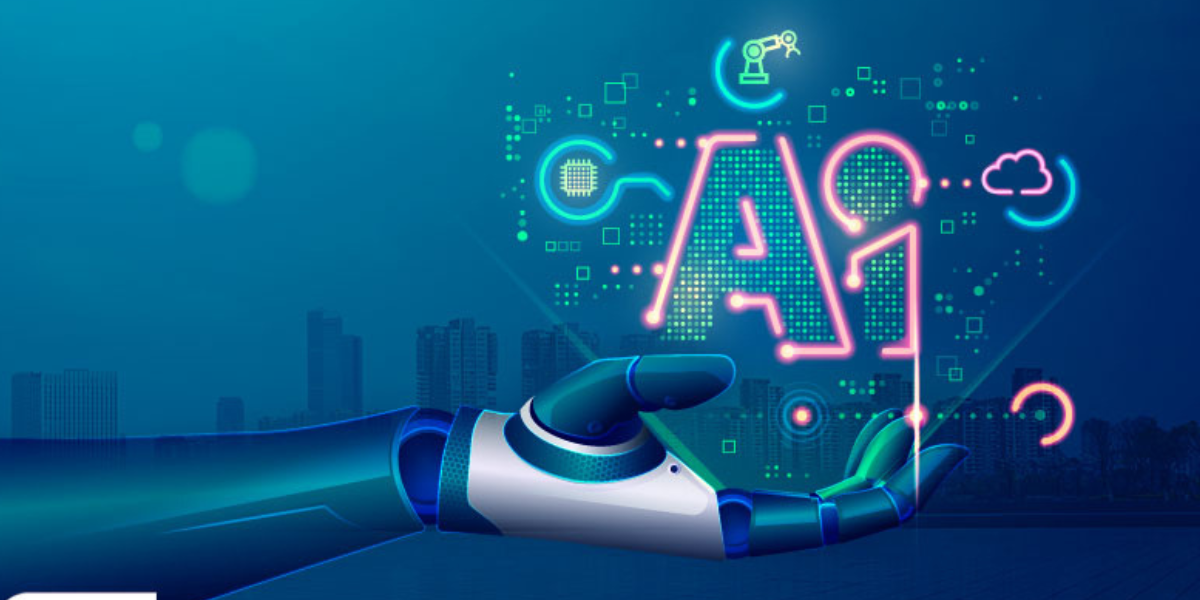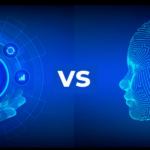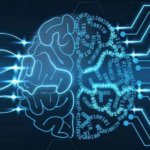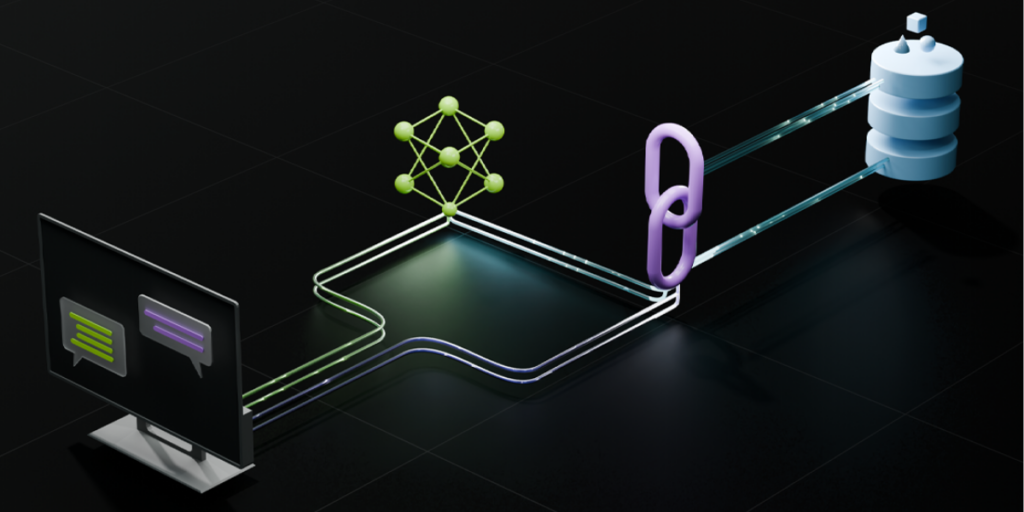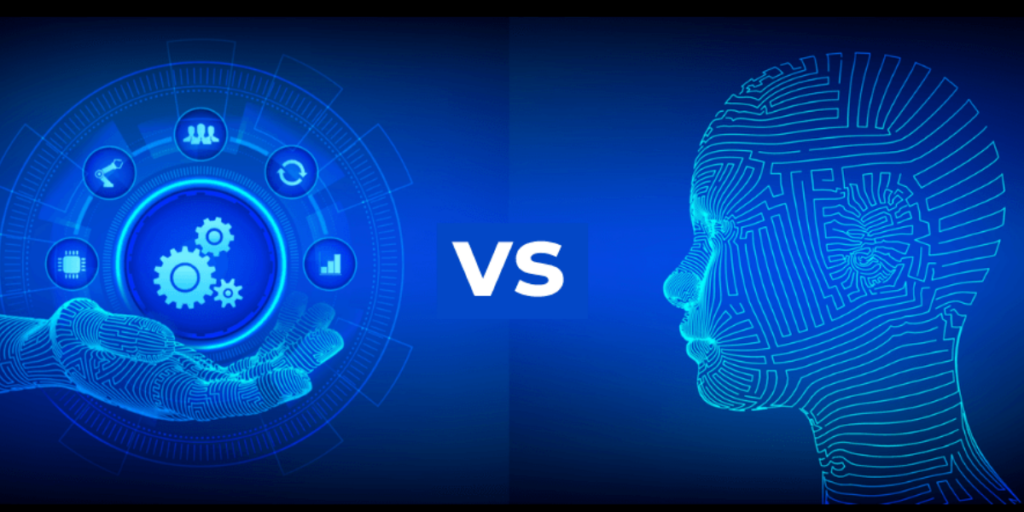Imagine an environment where all the AI tools you’ll ever require are available from one place and for less than what it costs to purchase the tools separately. This isn’t a pipe dream anymore. It’s already there! AI as a Service, also known as AIaaS, is entering the market rapidly. The suite of intelligent tools made available via the cloud comprises machine learning (ML) and natural language processing (NLP). It allows businesses to test AI without the expense or risk.
Due to AI’s widespread use, the AIaaS market is an important subject to study. This article will look at AI’s effect on cloud services and influence. We’ll also discuss AIaaS as a service, its advantages and drawbacks, and what it can bring to the near future.
What is AIaaS?
Artificial Intelligence enables a computer brain to think and perform tasks like humans. It can perform functions like automating language translation, controlling robotics, playing patterns, chess, and many more using a third-party solution’s ease of use and versatility. Computers can perform specific tasks that only human beings can do. Artificial Intelligence is a term that has been used to describe it. It is a term that changes its meaning continuously as it evolves.
Artificial Intelligence as a service, also known as AIaaS, is the notion that everything is a tool that can provide sophisticated AI capabilities to organizations at a low cost. In the past couple of years, top IT companies, such as IBM (Developer Cloud), Microsoft (Azure), Amazon (Web Service), and Google (Cloud Platform), have begun offering AIaaS.
In most cases, businesses only require part of the expert group to implement AI or develop AI software independently. Furthermore, with the AIaaS system, users only buy the needed features and upgrade to more expensive plans as their business’s data and operations grow.
AI is a broad term covering various technologies, such as Natural Language Processing (NPL), computer vision, machine learning, and robotics. While you might have heard of concepts like infrastructure as a service (IaaS), platforms as a service (PaaS), function as a service (FaaS), and software as a service (SaaS), AIaas provides ‘as-a-service solutions hosted by an outside vendor.
Different Types of AIaaS
With the various kinds of AI services, selecting the one that best suits the company’s requirements is possible. Considering the issues and solutions that facilitate integration is a good idea.
Additionally, it will assist in implementing a solution that only requires a little prior knowledge before implementing AIaaS. Let’s look at a few of the most popular kinds that make up AIaaS solutions.
Bots
Developers should put enormous effort into making chatbots a winning story. Chatbots can fail; however, an engaging chatbot equipped with AI algorithms can mimic human conversations. A delicate mix of NLP and ML capabilities will help you understand users’ needs and provide answers.
Nowadays, chatbots are making waves in customer service. They can reduce first-time customer response rates and increase customer satisfaction. Additionally, automating routine tasks is removed, saving agents time and allowing them to shift their attention to more challenging tasks.
Europe’s fastest-growing parcel service, InPost, recently reported that it can automate as many as 92% of the million customer chats it handles each year using chatbots.
Another instance is Microsoft’s XiaoIce, an AI chatbot that has been a success (along with the GPT-3) and is considered to be one of the top-of-the-line chatbots. In addition, because of its market position in 2021, it was valued at $1 billion.
Application Programming Interface (API)
AIaaS solutions provide amazing APIs, which are ways for the services to interact with each other. APIs function as intermediaries, allowing two software components to connect.
Nowadays, APIs for Natural Language Processing allow for sentiment analysis. They also allow the extraction of the entities in text and other things. When provided as part of a service, APIs can be incorporated and used in minutes, and developers must write just a couple of lines of code. The available APIs include:
- Computer Speech and Computer Vision
- NLP
- Knowledge mapping
- Emotion detection
- Translation
- Search
Machine Learning
ML and AI frameworks are well-known tools that developers employ to develop models. Additionally, they can identify patterns in huge amounts of data, create predictions, and speed up processes.
Machine learning is often associated with extensive data but can also serve many other applications because these frameworks can be used to build machines that learn without requiring a large data environment.
With AIaaS, businesses can take advantage of ML technology. They can use trained models or custom tools tailored to meet their business’s specific needs—all that and more without previous ML knowledge.
Benefits of Using AI as a Service for Businesses
Using AI as a Service (AIaaS) can provide many benefits for companies looking to improve and innovate their processes. According to a study from Grand View Research, the global AIaaS market is projected to grow to USD 77.47 billion, which highlights the increasing reliance and trust in these technologies across different sectors. Here’s a comprehensive listing of the benefits:
Cost Efficiency
AIaaS can eliminate the requirement for massive upfront investment in AI infrastructure, like the software and hardware, making it economically affordable for companies regardless of size. This lowers the barriers to entry for small businesses looking to use AI.
Quick Deployment
AI as a Service allows firms to deploy AI solutions quickly, allowing users to reap the benefits of AI technologies instantly without long development times. Rapid implementation means quicker project completion and quicker results realization.
Access to Expertise
AIaaS providers provide access to a team of experts who can manage and regularly update AI models, ensuring clients have the latest technology. This professional guidance can help companies navigate the maze of AI without needing in-house experts.
Scalability
Companies can expand their AI capabilities upwards or downwards according to their requirements without worrying about physical limitations in computing capacity. This flexibility is vital in adapting to market trends and changes in demand.
Focus on Core Business
By outsourcing AI requirements through AI as a Service, companies can concentrate on the core competencies and ensure business operations continuity while using AI’s power to improve their services or products. This method of operation lets teams devote more resources and focus on achieving their long-term business objectives to ensure steady growth and smooth operations.
Enhanced Data Insights
AI services can process and analyze vast amounts of data faster than traditional approaches, providing organizations with more insight and precise forecasts. These insights can lead to more informed decisions across the company.
Improved Customer Experience
AI as a Service can customize customer interactions by analyzing the customer’s behavior and preferences. This leads to better satisfaction and improved loyalty. Personalization on a large scale, facilitated by AI as a Service, will transform IT support, helpdesk functions, and customer service, along with marketing and customer service strategies. This integration helps them become more efficient and tailored to each individual’s requirements, improving the customer experience and enhancing support effectiveness.
Innovation Opportunities
With AI tools easily accessible, companies can explore innovative ideas and strategies that encourage innovation while staying ahead of the pack. This freedom to be creative could lead to new solutions and products that distinguish the business from its competitors.
Risk Management
Advanced analytics and AI’s predictive capabilities will help companies identify possible risks and make informed decisions to minimize them. A proactive approach to risk management aided by AI can cut expenses and safeguard a company’s image.
Regulatory and IT Compliance
AI tools also aid in ensuring compliance with a variety of regulatory and IT requirements for compliance, which reduces the chance of legal issues and fines. Automating compliance procedures through AI as a Service reduces the amount of work and reduces human error while ensuring that IT processes adhere to regulations and standards effectively.
Challenges of AI as a Service
AIaaS is an effective instrument with enormous potential, but it’s an evolving technology with its issues. Companies must carefully consider and address these issues to maximize the value of AI as a Service as it evolves. One of the biggest challenges AIaaS faces we identify the following:
Vendor Dependence
AIaaS solution tend to be proprietary, and companies could rely on one provider for their AI requirements. Before adopting AIaaS, companies should consider factors like open-source alternatives and the portability of AI models to limit dependence on third-party vendors.
Data Privacy and Security
AIaaS solutions depend on access to sensitive information, and business owners should ensure that their data is secure and managed through the AIaaS provider. Privacy laws governing data storage, such as GDPR, require strict data handling, and businesses must abide by these rules to avoid reputational and legal risk.
Cost Considerations
Although AIaaS initially lowers costs upfront, the price for use and maintenance could be hefty. Businesses must be aware of their long-term costs and make sure that AIaaS matches their goals for ROI and budget.
Transparency and Explainability
AI models can be complicated and hard to comprehend, raising concerns over fairness, accountability, and the possibility of biases inherent in AI algorithms. Businesses should carefully assess the credibility of AIaaS solutions to ensure they comply with ethical guidelines and policies regarding data governance.
AI Use Cases in Different Industries
Let’s examine some AI applications used by the industry.
Healthcare
The applications for AI in healthcare include:
- Medical Imaging: AI Intelligence analyzes X-rays and CT scans faster and more precisely, making it easier to identify ailments like pneumonia or TB. AI applications in healthcare can help detect lung nodules, lower the risk of malignant growths not being detected, and identify osteoporosis on X-ray images.
- Personalized Therapy: Artificial Intelligence utilizes patient information, including genetic information and lifestyle variables, to detect the risk of illness and tailor treatments. AI is the future of healthcare and assists in selecting the most effective chemotherapy treatments based on genetic profiles. It monitors patients remotely, finding early signs of illness like heart disease and diabetes.
- Electronic Health Records (EHRs): AI analyzes electronic health records (EHRs) to discover patterns and trends, predict health risks, and implement specific preventative strategies. It analyzes medical history, lifestyle and genetic data to identify the risk of heart disease, and patterns in prescription data to help prevent dangerous drug reactions.
Retail and E-Commerce
AI applications in e-commerce and retail consist of:
- Personalized Shopping Experience: AI examines the user’s behavior, preferences, and previous purchases to give personalized suggestions based on personal information. This enhances the user experience, improves customer engagement, and boosts sales by offering goods customized to each individual’s preferences.
- Dynamic Price Optimization(DPO): Businesses employ AI algorithms to keep track of the market’s conditions in real-time, competitors’ pricing, and demand from customers. Artificial intelligence applications in e-commerce enable dynamic pricing adjustments, ensuring the right pricing strategies to remain competitive, increasing profits and effectively adapting to market fluctuations.
- Chatbots to help with Customer Service: Artificially powered chatbots can be utilized to handle customer inquiries, provide instant assistance, and track orders. Their prompt responses help improve service and create for the company as a component of AI in retail-related use cases.
Food Technology
AI in the food industry can be used in a variety of ways, including:
- Supply Chain Optimization: Artificial Intelligence improves the food supply chain by predicting demand, managing inventory, and streamlining logistical processes. This helps reduce waste, assure prompt delivery, and increase efficiency when transporting food from the fields to the customers.
- Quality Control: AI-powered tools are employed during food production to guarantee the quality of food products. Computer vision algorithms can detect defects, contamination, or other anomalies in food products, ensuring that only the best items are available on the market.
- Menu modification within Restaurants: AI is used in the restaurant industry to alter menus according to customers’ preferences, dietary restrictions, and order history. This enhances the dining experience, increases customer satisfaction, and allows businesses to offer a variety of specialized menus.
Banking and Financial Services
AI in finance and banking application cases are as follows:
- Prevention and detection of fraud: Artificial Intelligence is employed in finance and banking to identify fraud in real-time by studying transaction patterns to detect anomalies and suspicious transactions. Machine learning algorithms adapt to changes in fraud patterns and improve security when making financial transactions.
- The Credit Scoring Process and Risk Assessment: AI-powered credit scoring utilizes different sources of information and ML algorithms to increase the quality of creditworthiness assessments for businesses and individuals. This leads to better risk management and allows institutions to make informed decisions regarding lending.
- AML Compliance: Anti-Money Laundering (AML) Conformity: AI enhances AML compliance by simplifying the process of analyzing massive amounts of transaction information.
Supply Chain and Logistics
AI in supply chain scenarios are:
- Management of Warehouse Layouts and Space Utilization: By analyzing information on product demand and inventory levels, AI-driven logistics management enhances warehouse operation efficiency. AI makes the best use of the space available by changing the layout of shelves and racks to accommodate different items and storage needs.
- Monitoring and Tracking Shipments: AI efficiently monitors and tracks shipments in real-time. It also notifies users of any delays or issues in a timely manner. Innovative algorithms analyze shipping data to predict possible problems and assist in taking preventative actions.
- Resource Management: AI enhances resource management by efficiently dispersing tasks between humans and analyzing data about workloads such as order quantity and processing time. This ensures that functions align with the workers’ skills and availability, thus reducing delays and improving overall efficiency.
Travel
Application made by AI for the industry of travel comprise:
- Personalized Itineraries: Artificial Intelligence lets travel companies create custom itineraries based on the individual’s preferences. AI is an intelligent travel advisor that creates unique experiences for every traveler according to their budget, time constraints, and interests in social media.
- Real-time Travel Updates and Tips: Artificial Intelligence allows travel companies to provide instant information and personalized suggestions based on location and interest. As a virtual tour guide, AI can suggest places to visit, such as peaceful cafes, obscure galleries, and stunning landscapes, enriching your travel experience by providing unique insight.
- Chatbots powered by AI: Chatbots assist customers with queries when booking. These chatbots can provide quick and precise assistance, including prices, help customers compare options, and help them make well-informed choices in accordance with their preferences, schedules, and budgets.
Real Estate
The examples of AI within real estate comprise:
- Automated Property Valuation: AI algorithms rely on the past, local market conditions, and property properties to estimate real estate’s worth. This objective method removes biases based on personal experience and produces precise appraisals for buyers, lenders, sellers, and investors.
- Optimizing Portfolios for Real Estate Investment: AI uses machine learning to study massive amounts of data and predict the value of property, rental income, and market volatility. Artificial intelligence-powered risk assessment algorithms build diverse portfolios by monitoring economic indicators and market volatility and then enhancing the risk-reward balance through rapid changes in the market in real-time data processing.
- Automated lead generation: Artificial Intelligence in real estate makes it easier and improves the identification of possible leads. Machine learning algorithms use a variety of data sources to determine potential buyers according to demographics, online activity, and property preferences. AI uses predictive analytics to predict the probability of lead conversion, allowing agents to determine the priority of lead prospects with the highest potential and to manage resources more effectively, resulting in quicker processes and better conversion rates.
Media and Entertainment
AI in entertainment and media is used in the following ways:
- AI-Powered Music Recommendation Systems: These systems create customized profiles based on the user’s information, such as listening history and personal preferences. These profiles can be utilized to develop personalized recommendations based on genre, mood, artist, and speed. Platforms like Spotify use AI algorithms to analyze the user’s behavior and create custom playlists to provide a more enjoyable user experience regarding music discovery.
- Artificial Intelligence in Games Design and Play: It improves game design by improving NPCs (NPCs) and mechanisms, leading to real-life and challenging levels that enhance the player’s experience. What industries make use of artificial intelligence? The gaming sector is one of them. AI helps provide the most difficult opponents with more knowledge and a greater sense of immersion. It also assists in materials, like new characters and stages, to create a continuously engaging and thrilling gaming experience.
- Film Editing: Artificial Intelligence is vital to creating robust movie trailers and editing long-length films. AI excels in identifying high-impact emotional situations, allowing editors to create compelling trailers. In addition, AI helps edit complete films and uses facial recognition to recognize essential actors and plot-related events, which speeds up the editing process of feature-length projects.
Manufacturing
The application of AI in manufacturing includes:
- Defect Detection: AI enhances the detection of defects in manufacturing by adding self-learning features to existing systems. This reduces false alarms and lengthy manual inspections. Artificial intelligence helps manufacturers increase productivity, decrease manual interventions, and improve overall product quality.
- Assembly Line: Integration of AI-automated assembly lines streamlines manufacturing processes today, reducing the need for human intervention while ensuring consistent, efficient, and error-free production. This increases efficiency, reduces errors, and improves production because machines can perform tasks on a predetermined schedule.
- Predictive Analytics: By analyzing information from sensors and maintenance records, AI systems may forecast equipment breakdowns and plan repair work ahead of time. This strategy can prevent unwanted downtime and reduce the cost of maintenance.
Automotive
The uses of AI in automotive include:
- Intelligent Traffic Management: It utilizes artificial intelligence to assess the real-time traffic data obtained from GPS or Security Cameras. AI systems use this information to improve traffic flow, minimize traffic congestion, and improve the safety of drivers on the road. Traffic signal control systems that adapt to traffic conditions automatically adjust the timings of signals in response to actual traffic conditions, which reduces congestion. Dynamic route planning offers alternative routes to drivers, which reduces the time needed to travel. In addition, AI-driven detection systems can detect accidents swiftly, allowing quick responses and efficient routing.
- Improved Navigation: Artificial Intelligence-powered navigation is more advanced than the typical GPS and offers the most efficient routes based on real-time data like weather, traffic, and road and weather conditions. The adaptive algorithms automatically alter routes to prevent accidents and congestion, providing drivers with better routes.
- A Personalized Experience for Customers: AI provides personalized customer experiences to customers in the automotive industry by adjusting how people interact and providing services to each individual’s needs. AI systems study data like previous purchases and driving patterns to generate customized suggestions for car features and maintenance and repair schedules. This improves customer engagement, loyalty, and satisfaction. Chatbots that AI powers can provide rapid support, helping customers through issues such as buying or troubleshooting. This results in a pleasant and personalized experience.
Education
AI has positively influenced the field of education by changing learning methodologies and offering a variety of applications in AI instances. Here are a few cases:
- Personalized Learning: AI alters data and learning methods to meet student’s individual needs, increasing engagement and improving performance to ensure students receive targeted and flexible educational experiences.
- Intelligent Tutoring: AI-powered tutoring systems offer personalized assistance and feedback for students, enhancing students’ learning experiences. These AI in education systems are geared to learners’ needs, providing individualized assistance and improving understanding in many subjects.
- Learning Analytics: AI investigates learning analytics by looking at student performance data to find patterns. Educators can use these insights to design targeted interventions based on data, pinpoint areas of improvement, and offer individualized support to boost students’ overall achievement.
Fashion
The uses of AI in fashion include:
- Trend Predicting and buying: AI is critical in the fashion industry. It utilizes information from many sources to predict trends. By studying consumer preferences and behavior through social media, sales data, and blogs about fashion, AI algorithms enable intelligent purchasing choices. This helps fashion firms align their collections with the latest trends and fashions, which increases their market value.
- Creation and Design: AI technologies are incorporated into the development and design process to give design suggestions that optimize patterns for materials efficiency and create virtual prototypes. AI in fashion accelerates the process of creativity by allowing designers to play with different designs, materials, and colors. This results in more efficient design creation and better product production within the fashion industry.
- Style and Visual Merchandising: Artificial intelligence can improve visual merchandising by suggesting different styles in response to consumer preferences and fashion and style trends. When shopping in a store or on the internet, AI recommends product pairings, outfit suggestions, and virtual trials. This customized strategy entices customers by offering an enjoyable and appealing shopping experience.
Future of AI as a Service
The future of AI as a Service (AIaaS) promises to be exciting, and significant improvements in scalability, customization, and accessibility will be seen. While cloud computing continues to develop, AI services are becoming more advanced and capable of handling complicated tasks across various sectors. This trend will likely lead to an increase in the number of businesses that adopt AI-as-a-Service Solutions due to the need for efficiency and competitive advantages.
One of the most critical developments in the near development of AIaaS is the growing integration of AI alongside emerging technologies like blockchain and the Internet of Things (IoT). This integration can improve data security, boost supply chain operations, and help create more intelligent IoT devices, among other advantages. In addition, as AI algorithms become more advanced and efficient, we can expect to receive more accurate and personalized services that could transform areas like finance, healthcare, and customer service.
A key aspect of AIaaS’s future is the possibility of democratizing AI technology, which will make it available to startups and smaller companies that might not have the funds to create their own AI systems. This will lead to the growth of creativity and competition because more players will be able to take part in the AI sector. The development of AIaaS is closely linked to advancements in technology as well as the increasing acceptance of AI’s potential to help drive the success of businesses.
Innovations on the Horizon
As we look ahead, many advancements within AI as a Service will likely transform the industry in the near future by making AI easier to access, practical, and cost-effective. The most anticipated development is the development of autonomous AI systems, which can work independently without the intervention of humans. The systems are expected to grow with time, thanks to machine learning, which will lead to more intelligent AI solutions that can adapt to changes in the environment and take advantage of new information.
Another exciting innovation is the advancement of AI-based analytics software, which can offer more insights into data than before. These tools utilize sophisticated machine learning algorithms to analyze large amounts of data quickly and accurately, allowing companies to make better decisions faster. This ability is beneficial in areas like healthcare and finance, where data interpretation in real-time could significantly affect results.
Furthermore, integrating AI with natural language processing (NLP) technology is enhancing the functionality and efficiency of AI systems. AIaaS products will likely feature higher-end NLP capabilities, allowing people to work and interact with AI systems more effectively and naturally. This innovation could help improve customer service apps and make virtual assistants more efficient and enjoyable for customers.
In the end, AI as a Service’s future AI as a service is marked by continual advancement, with the introduction of new technologies increasing the efficiency and availability of AI solutions. These developments will significantly change how companies operate and compete in the new digital age.
Predictions for Market Growth
The AI as a Service (AIaaS) market is set to see significant growth over the following years. According to a study by MarketsandMarkets, the global AIaaS market size is predicted to increase from 1.52 billion as of 2018 to 10.88 billion in 2025, with a Compound Annual Growth Ratio (CAGR) of 48.2 percent during the forecast period. This is due to the growing demand for AI-powered solutions in different industries, including healthcare, finance, and retail, as well as other areas.
One of the main elements driving this market’s expansion is the widespread adoption of cloud-based services, which offer scalable resources for deploying AI abilities without requiring significant initial investment. Companies are taking advantage of AIaaS to increase competitive advantages by improving customer service, enhancing efficiency in operations, and enabling new ideas. Additionally, the constant technological advancements in machine learning, natural processing of languages, and computer vision technologies are expected to boost the development of AIaaS solutions.
Popular AI as a Service Provider
AI as a Service (AIaaS) companies provide artificial intelligence services via cloud computing, allowing developers to access and use AI capabilities without needing to create or maintain their own systems. They provide these services via APIs (Application Programming Interfaces), which make it simpler for developers to incorporate AI functions into their applications. Let’s look at some of the most popular AIaaS companies and the services they provide:
OpenAI
OpenAI is well-known for its dynamic AI services. They provide developers with APIs that allow them to integrate features of natural language processing into their apps. This includes text generation, translation into languages, and sentiment analysis. One example of the work done by OpenAI is ChatGPT, a conversational AI model.
IBM Watson
IBM Watson is recognized for its AI services, which include Watson Assistant, which creates conversational AI agents, and Watson Natural Language Understanding, which processes and understands text. These services let developers develop advanced applications using natural language capabilities.
Google Cloud Platform (GCP)
GCP offers AIaaS that includes services like Google Cloud Vision to recognize images, Google Cloud Natural Language to analyze text, and Google AutoML to train models for machine learning. These tools let developers utilize AI’s potential to develop various applications.
Microsoft Azure
Microsoft Azure boasts a comprehensive collection of AI services collectively referred to as Azure Cognitive Services. These services include speech, vision, and search capabilities. In addition, Azure Machine Learning empowers users to develop, deploy, and manage machine-learning models quickly.
Salesforce
Salesforce uses AI to improve the quality of its customer relations management (CRM) solutions. This includes predictive lead scoring, automated email responses, and sentiment analysis. Salesforce’s AI-powered platform seamlessly integrates into its CRM capabilities.
Baidu AI Open Platform
Baidu is a renowned Chinese web search engine. It is an open platform that includes AI features like speech synthesis, image recognition, natural language processing, and machine learning tools.
Oracle AI Platform
Oracle offers a range of AIaaS solutions, including an Oracle Autonomous Database with machine learning features, Oracle Cloud Data Science to build and deploy models, and Oracle AI Apps for industry-specific AI applications.
Amazon Web Services (AWS)
AWS is an important player in cloud computing and offers a range of AI services. These comprise Amazon Rekognition for computer vision, Amazon Comprehend for natural language processing, Amazon Lex for building chatbots, and Amazon Forecast for predictive analytics.
Tencent AI Open Platform
Tencent is a well-known Chinese technology company that provides an AI open platform that offers a variety of capabilities, such as natural speech processing, speech recognition recommendation systems, and more.
Clarifai
Clarifai specializes in image recognition and visual analysis. It offers APIs and SDKs to perform tasks such as image detection, object detection, and facial recognition, making it easier for developers to incorporate AI-based visual features into their apps.
Conclusion
AI is a rapidly growing technology that is expected to have many applications in the near future. Artificial Intelligence (AI) is an instrument that lets companies use tools such as Machine Learning (ML) without spending much on maintenance, hiring experts, or establishing infrastructure. With AI as a service, your business will benefit from the most advanced technologies like artificial intelligence and machine learning, reducing the issues of maintaining overheads and requiring highly skilled employees.
The A3Logics team is available to help you steer the right direction for your company’s growth and technology by using Artificial Intelligence as a Service (AIaaS) tools. Our experts are dedicated to guiding you through the seamless implementation of the most appropriate AI as a service tool within your business, ensuring it promotes growth for your business at a cost-effective price. It can be difficult to navigate the ever-changing world, and AI deployment can prove a challenge.
\
However, with A3Logics’s experience, you can tap into the potential that comes with AI without the need for massive resources. We recognize that implementing AI is a significant decision for your company. Our team is committed to making the process efficient and productive.
A3Logics’, an AI-as-a-Service company commitment to AI development extends far beyond providing a service. We aim to provide your business with the best AI tools to meet your goals and objectives.

